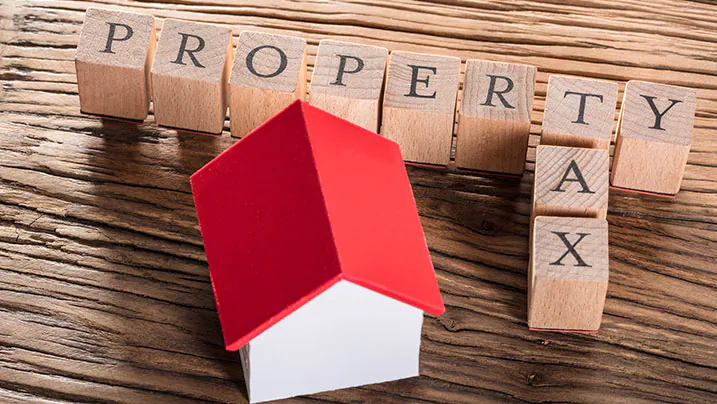Property ownership is often considered the cornerstone of financial security and personal stability. Yet, one aspect of homeownership that can sometimes catch people off guard is the obligation to pay property taxes. These taxes are essential for funding local schools, public safety, and community infrastructure, but they can also be a significant financial burden—especially if you fall behind.
When homeowners cannot keep up with property taxes, the consequences can be serious, ranging from hefty penalties and accumulating interest to the most severe outcome—losing the home to foreclosure. To avoid this, many people consider turning to property tax loans. But are these loans truly a good idea? Or do they create more problems than they solve?
This guide explores property tax loans in detail—what they are, how they work, their pros and cons, alternatives, and practical steps to decide whether one is right for you.
What Is a Property Tax Loan?
A property tax loan is a financing option where a private lender pays your delinquent property taxes directly to your local tax authority. In exchange, you enter into a repayment agreement with the lender, typically through monthly installments.
Essentially, it replaces your tax debt owed to the government with a loan obligation owed to a private company. For many, this offers immediate relief from the threat of foreclosure or further penalties.
Key Features of Property Tax Loans:
- The loan amount equals the unpaid taxes, plus lender fees and interest.
- The lender pays your county or city directly, clearing your tax debt.
- You repay the lender in monthly installments.
- If you fail to pay the lender, they may have the right to foreclose on your property.
How Do Property Tax Loans Work?
- Application Process
You apply with a lender who specializes in property tax loans. They review your property information, outstanding taxes, and repayment ability. - Approval and Agreement
If approved, the lender provides a loan agreement outlining the loan amount, interest rate, repayment terms, and consequences of default. - Payment of Taxes
The lender pays your taxes directly to the tax authority, stopping penalties, lawsuits, or foreclosure proceedings. - Repayment
You begin making monthly payments to the lender. The schedule can range from 2 to 10 years, depending on the agreement. - Completion
Once repaid in full, your property is free from the lender’s lien, and you’re back in good standing.
Advantages of Property Tax Loans
While they aren’t for everyone, property tax loans do have clear benefits:
1. Immediate Relief
The most important benefit is that your taxes are paid right away, protecting your property from foreclosure by the government.
2. Stops Penalties and Interest
Local tax offices often impose high interest rates (sometimes 10%–20% annually) and penalties on delinquent taxes. A property tax loan can stop these charges from piling up.
3. Flexible Repayment
Instead of paying one lump sum, you can spread repayment over several years, making it easier to manage within your budget.
4. Keeps You in Your Home
For homeowners at risk of losing their property due to unpaid taxes, this option can be a lifeline.
5. Quick Approval Process
Many lenders offer fast approvals, sometimes within days, which is crucial when foreclosure deadlines are looming.
Risks and Drawbacks of Property Tax Loans
Despite their advantages, property tax loans also carry risks that every homeowner must carefully consider.
1. High Costs
Lenders charge interest and fees, which can sometimes equal or exceed the penalties you would have faced from the tax authority.
2. Risk of Foreclosure
If you cannot make payments to the lender, they may have the legal right to foreclose, just as the government would have.
3. Short-Term Fix
A loan only addresses the immediate tax debt, not the underlying financial problem that caused it. Without a long-term solution, you may fall behind again.
4. Availability Issues
Not all states allow private property tax loans. Some regulate them heavily, while others prohibit them altogether.
5. Potential Impact on Credit
Missed payments may damage your credit score, making it harder to borrow in the future.
When Are Property Tax Loans a Good Idea?
Property tax loans may be beneficial if:
- You’re facing imminent foreclosure due to unpaid taxes.
- You have a stable income and can handle monthly payments.
- You’ve exhausted other relief options (such as government payment plans).
- You need quick approval and funding to resolve urgent tax issues.
When to Avoid Property Tax Loans
It may be better to avoid property tax loans if:
- Your income is unstable, making repayment uncertain.
- You qualify for tax exemptions or reductions (such as for seniors, disabled homeowners, or veterans).
- Your county offers a payment plan with lower interest than private lenders.
- The loan terms are unfavorable (high interest rates, excessive fees, or harsh penalties).
Alternatives to Property Tax Loans
Before committing to a property tax loan, consider these alternatives:
- Payment Plans with Local Tax Authority
Many counties offer installment plans, often with lower interest rates than private lenders. - Property Tax Exemptions or Deferrals
Seniors, disabled individuals, and veterans may qualify for programs that reduce or defer taxes. - Refinancing Your Mortgage
If you have equity in your home, refinancing could provide funds to cover tax debts at a lower interest rate. - Home Equity Loan or Line of Credit (HELOC)
These may offer lower interest than property tax loans, though they still place your home at risk. - Financial Counseling
Nonprofit organizations and housing counselors can help explore budget adjustments and alternatives.
Step-by-Step: How to Get a Property Tax Loan
If you’ve weighed the pros and cons and decide a property tax loan is right for you, here’s the process:
- Assess Your Situation
Know exactly how much you owe and when payment is due. - Research Lenders
Look for licensed lenders with positive reviews and transparent terms. - Compare Offers
Review interest rates, repayment terms, and fees. Don’t settle for the first offer. - Apply
Provide property details, proof of income, and tax debt information. - Review the Contract Carefully
Ensure you understand repayment terms, penalties for missed payments, and foreclosure risks. - Pay Attention to State Laws
Some states have consumer protections in place; others leave you more exposed. - Commit Only If Confident
Take the loan only if you’re sure you can meet repayment obligations.
Real-World Example
Consider John, a homeowner in Texas (a state where property tax loans are common). He owed $8,000 in back taxes and faced foreclosure in 60 days. He secured a property tax loan with a lender, who paid off his taxes immediately. John agreed to a 5-year repayment plan with 10% interest.
Pros: John avoided foreclosure and kept his home.
Cons: By the end of repayment, he paid nearly $3,000 in interest—more than if he had arranged a payment plan with the county.
This example highlights the importance of comparing all available options before committing.
Conclusion: Are Property Tax Loans a Good Idea?
Property tax loans can be a lifesaver for homeowners at risk of losing their property, offering immediate relief and manageable repayment schedules. However, they come with high costs and risks, especially if your financial situation remains unstable.
The smartest approach is to:
- Explore all alternatives first—like tax office payment plans, exemptions, or refinancing.
- Use property tax loans only as a last resort when foreclosure is imminent and repayment is realistic.
- Read contracts carefully and work only with reputable, licensed lenders.
Read More:
- Can You Dispute Student Loans on Your Credit Report in Florida?
- Does a Business Loan Affect Personal Credit in the USA?
- How to Reduce Home Loan Rate of Interest in California: A Guide to Saving
- What private assets in retirement plans mean for investors
- Loan Contract Disclosures: What Are Your Rights as a Credit Applicant?










